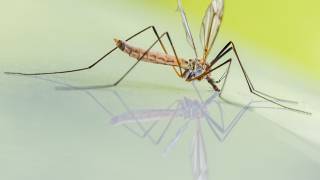Malaria Medicine May Protect Fetus From Zika

Researchers from Washington University School of Medicine found that hydroxychloroquine, a malaria drug related to chloroquine, protects the fetus from viral infection.
This drug already is approved for use in pregnant women for other medical purposes.
These researchers reported that drugs that suppressed autophagy resulted in fewer placental cells infected with Zika virus.
In other words, the virus multiplied and spread more effectively when the researchers dialed up the barrier response, and performed more sluggishly when they dialed it down.
There were, and still are, no drugs or vaccines approved for use by pregnant women to protect them or their fetuses from Zika infection.
“We found that the malaria drug hydroxychloroquine effectively blocks viral transmission to the fetus,” said senior author Indira Mysorekar, PhD, an associate professor of obstetrics and gynecology, and of pathology and immunology at Washington University.
The developing fetus is uniquely vulnerable to damage from infection, so the body mobilizes robust defenses to keep microbes from ever reaching the fetus in the first place.
The placenta is a barrier against maternal-fetal transmission of pathogens, which is the last line of virus defense.
Dr. Mysorekar and others have shown that a process known as autophagy, the cellular waste-disposal pathway by which cells grind up debris, unwanted organelles and invading microbes, is an important part of the formidable placental barrier to infection.
Bin Cao, PhD said, “It appears that Zika virus takes advantage of the autophagy process in the placenta to promote its survival and infection of placental cells.”.
“We would urge caution but nevertheless feel our study provides new avenues for feasible therapeutic interventions,” said Dr. Mysorekar.
“Our study suggests that an autophagy-based therapeutic intervention against Zika may be warranted in pregnant women infected with Zika virus.”
The findings were published July 10, 2017 in The Journal of Experimental Medicine. Cao B, Parnell LA, Diamond MS, Mysorekar IU. Inhibition of autophagy limits vertical transmission of Zika virus in pregnant mice.
The researchers did not disclose any conflicts of interest. This work was supported by the Eunice Kennedy Shriver National Institute of Child Health and Human Development of the National Institutes of Health (NIH), grant number R01 HD091218; National Institute of Allergy and Infectious Diseases, grant numbers R01 AI073755 and R01 AI104972; the Burroughs Wellcome Fund through a Preventing Prematurity Initiative grant; and the March of Dimes, award number 21-FY13-28.
Our Trust Standards: Medical Advisory Committee
- Inhibition of autophagy limits vertical transmission of Zika virus in pregnant mice
- Malaria drug protects fetuses from Zika infection
- Primary Human Placental Trophoblasts are Permissive for Zika Virus (ZIKV) Replication
- A Screen of FDA-Approved Drugs for Inhibitors of Zika Virus Infection
- ATG16L1 governs placental infection risk and preterm birth in mice and women
- Hydroxychloroquine
- Mouse models of Zika in pregnancy show how fetuses become infected

























